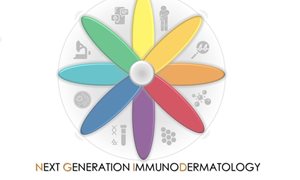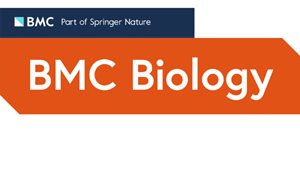
The Dutch Society for Experimental Dermatology (NVED) selected a paper by Jos Smits and Tom Ederveen, theme Inflammatory diseases, as one of the best Dutch scientific publications of 2019. They awarded the title during the Breaking News session at the annual meeting of the Dutch Society for Dermatology and Venerology (NVDV), on September 25th 2020.
The study published in the Journal of Investigative Dermatology, showed that treatment of atopic dermatitis (eczema) with topical coal tar cream can lead to alteration of the skin microbiome via aryl hydrocarbon receptor (AHR) mediated induction of host antimicrobial peptides. The publication concludes that the bacterial composition on the skin surface changes during coal tar treatment of atopic dermatitis. The authors were able to identify bacterial genera through sequencing of the ‘16S ribosomal RNA’ gene, which is present in all bacteria and can be used for profiling. They observed that the skin microbiome composition in patients, which typically consists of the eczema-associated bacterium Staphylococcus aureus, shifted over treatment to a more healthy microbiome, which is often characterized by the skin commensal Cutibacterium (acnes). In addition, by using a new method recently developed by the authors, profiling of a Staphylococcus-specific genomic region allowed for identification of Staphylococcus species in high-resolution, and led to the finding that Staphylococcus capitis might also be involved in atopic dermatitis pathogenesis.
.png.aspx?width=624&height=472)
Related news items

Large NWA ORC grant awarded for national skin research: Next Generation ImmunoDermatology
23 March 2022Research for better treatment methods for chronic skin diseases.
go to page
Novel high-resolution targeted sequencing of the cervicovaginal microbiome published in the Journal of BMC Biology
28 December 2021 This project of William Melchers, Karolina Andralojc and Mariano Molina describe a novel sequencing method to profile the cervicovaginal microbiome at the species level and with the potential to elucidate the role of the microbiome in hrHPV-induced carcinogenesis. go to page
LEO Foundation grant for Ellen van den Bogaard and Patrick Zeeuwen
17 January 2019 LEO Foundation ‘Open competition grants’ are given to support the best dermatology research projects worldwide that improve the understanding of the underlying medicinal, biological, chemical, or pharmacological mechanisms of dermatological diseases and their symptoms. go to page
A new autosomal-recessive hypotrichosis syndrome
20 November 2018 Ellen van den Bogaard, theme Inflammatory diseases and Patrick Zeeuwen, theme Infectious diseases and global health, report the first family with cystatin M/E deficiency in Genetics in Medicine. go to page

